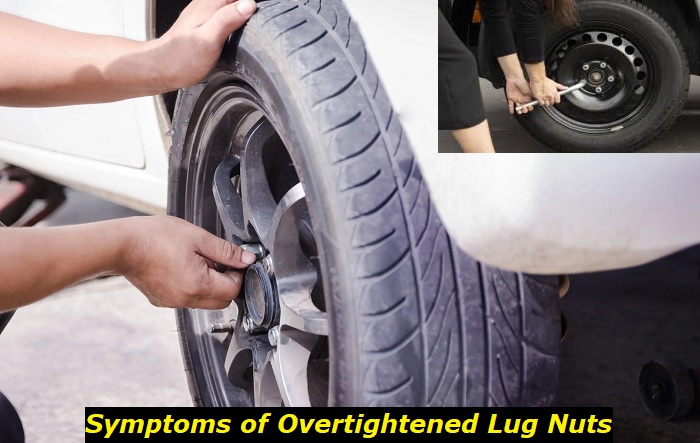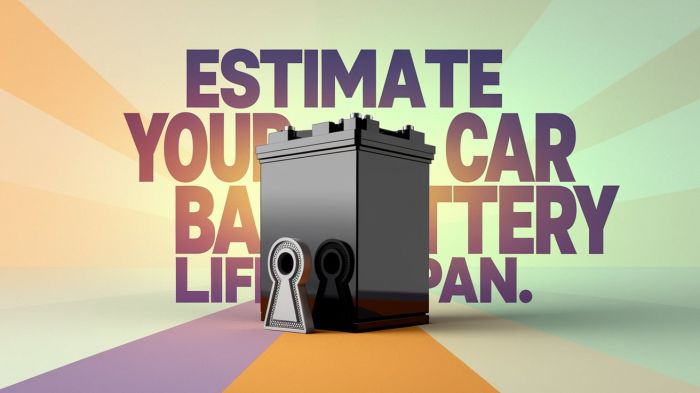Tightening the wheel nuts with a proper torque is extremely important. You may not be thinking of this as of a crucial safety thing in your vehicle but it is. You may have all the possible types of airbags and hundreds of super-modern high-tech safety features in your vehicle but if you tighten one of the lug nuts with improper torque, things may go absolutely horrible.
Wheels problems highlights
- Level of importance:medium
- Common reasons:potholes, accidents, lug nut problems
- DIY inspection:possible
- DIY repair:possible
- Average price in shops:$50 - $350
- Average time:0.5 - 3 hours
- If ignored:wobble, wheel falling off, vibration, no drive

Symptoms of the overtightened lug nut
Usually, the problem of hard tightening is not only for the single lug nut. Nuts are tightened with a torque wrench that is set for a certain power limit. If you tighten the nuts without the torque wrench, you may easily overtighten them or keep them loose. This may lead to problems. We are concentrating on the hard tightening today, but remember that badly tightened bolts and nuts on car wheels are even more dangerous.
So, you may have a flat tire and you will need to change the wheel using the one lying in your trunk. After installing the spare wheel, you don't have a torque wrench, in most cases, to check the torque of each nut. So, you will tighten them just with your hands with your understanding of what the best torque is. And you may fail.
Here's what will tell you about the overtightened lug nut:
- Your steering will become uneven. If you don't touch the steering wheel, you will notice that the vehicle goes to the side rather than keeping going straight.
- The vibration will occur at a higher speed. After you accelerate your vehicle to 50-60 mph and more, you may feel the vibration on the steering wheel and overall, in the entire vehicle.
- Bad sounds when you brake. Once you press the brake, the poorly balanced wheel will move a little and this can cause a screeching sound or other types of bad sounds.
- Your tire will wear unevenly. Although this is rather a long-term effect, you should know about it. Since the wheel will likely lose its balance, the tire will be heavily worn on one side.
- Some nuts will be more difficult to unscrew than others. The overtightened lug nut will be almost impossible to unscrew. You will know this later but this is another sign you should take note of.
So, these are the signs of the overtightened lug nut. We should say that if you are driving in the city, you may not understand that something is wrong with the wheel nut. Most of these signs will be more noticeable on highways. But it doesn't mean that in the city traffic, the overtightened lug nut doesn't cause any serious issues.
Now you know the primary symptoms of the lug nut that is tightened with improper torque. But what should you do? And how could this happen? We have too many questions to answer, so let's move on!
How could the lug nut in your car be overtightened?
We've already described one of the possible situations when you have a flat tire on your vehicle and put on the spare wheel. Also, you may need to take the wheel off the vehicle to repair it if you don't have a spare wheel in your car. Every time you take a wheel off your car and don't have the torque wrench around you, the vehicle is at risk of the overtightened lug nut.
Lots of people use the method of the lever arm to tighten the lug nuts. They take some metal pipe and put it on the wheel wrench to make the lever longer. This allows you to apply more power to the lug nut with less effort on your side. But this is how people usually overtighten the nuts.
One more way to overtighten your wheel nut is to use your leg for this. You may have seen people doing this - they tighten the bolt or nut on their wheel and then step on the wrench with their foot and press as hard as they can.
Another way to have the lug nuts in your vehicle overtightened is to go to the bad tire service shop. They may be just lazy to take the torque wrench and will do the same mistakes that we've listed above. So, better always go to good tire centers and avoid lazy mechanics.
What should you do after you suspect overtightened lug nuts?
We've told you about the symptoms and also the ways to get this problem. But what exactly should you do if you think the lug nuts in your car are overtightened? It depends on how intensive the symptoms are, but in most cases, you may do the following:
- Drive slowly. Just decelerate your vehicle to 20-25 mph to avoid accidents on the road.
- Drive to the nearest tire center or repair shop. Just find them on maps and drive directly there.
- Have your lug nuts checked or better retightened with a professional tool (torque wrench).
- Check if the symptoms are gone and keep driving safely.
Now you see that in most cases it's OK to drive carefully to the place where a professional mechanic can help you solve the problem. But what if you still feel all the symptoms even at a small speed? In this case, you will have to stop your vehicle and choose one of the two possible ways:
- Call the tow truck and have your vehicle delivered to the nearest repair shop for help.
- Take the wheel wrench and unscrew each nut a little, then tighten it with your hands without using any other techniques to apply more power.
The second way will only partially solve the problem because the nuts will still be tightened with improper torque. But at least, you will solve the issue of the too-bad tightening and will be able to slowly go to the repair shop.
In some cases, you may also call a service that offers small car repairs right on the roadside. These services are available in some places and they will cost you less than a tow truck. But check the price before you place your order.
What happens with your wheel when a lug nut is overtightened?
After you or someone else overtightens wheel nuts in your car, the nut itself may go bad. It has a thread that should be completely precise for the nut to work well. If the thread is somehow damaged, you will be in trouble.
Also, the stud has a thread and it can also be damaged with even worse consequences. What's more, the stud can be broken because of too much pressure on it. In this case, you will probably have to replace the whole hub.
There are other consequences, too:
- the wheel will be unbalanced and lose its optimal rotation, so the tire will be worn very fast on one side;
- since the wheel will be tilted to one side, the brake system may be heavily worn;
- the hub itself will get bad tension and may also be broken in the end;
- the wheel rim may be damaged or bent because of uneven pressure from the nuts.
Now you see that one overtightened lug nut can bring lots of bad consequences. You should also know that in the worst cases, you will have to change several parts: the rim, the tire, the hub, the nuts, and sometimes even the brake rotor and pads. If you count up the money, you will clearly see that overtightening lug nuts in your vehicle is not the cheapest mistake you can make.
But the most important thing is your safety. Driving a car with overtightened wheel nuts is not safe at all and it may lead to accidents on the road.
How to prevent lug nuts from overtightening?
You can prevent this problem from happening by just always servicing your wheels in a proper place. Never let anyone doubtful touch the wheels of your vehicle. Choose a tire service that you can trust even if you have to overpay for this.
Also, if you need to change your wheel in the middle of nowhere and you can't dream of getting a torque wrench there, you should never use anything else but the wheel wrench and your hands to tighten the bolts. Don't apply your foot or some metal tube, or whatever other methods you may think of. After you are done, drive to the nearest car shop to check the torque on your lug nuts with a torque wrench.
About the authors
The CarAraC research team is composed of seasoned auto mechanics and automotive industry professionals, including individuals with advanced degrees and certifications in their field. Our team members boast prestigious credentials, reflecting their extensive knowledge and skills. These qualifications include: IMI: Institute of the Motor Industry, ASE-Certified Master Automobile Technicians; Coventry University, Graduate of MA in Automotive Journalism; Politecnico di Torino, Italy, MS Automotive Engineering; Ss. Cyril and Methodius University in Skopje, Mechanical University in Skopje; TOC Automotive College; DHA Suffa University, Department of Mechanical Engineering






Add comment